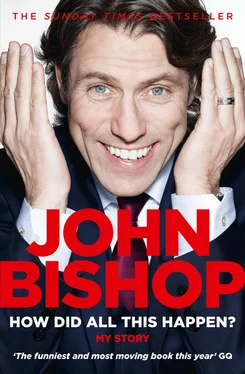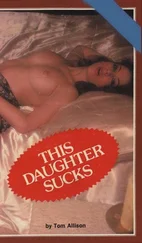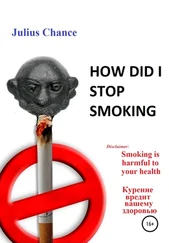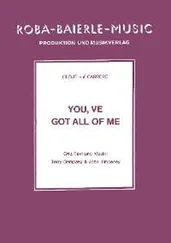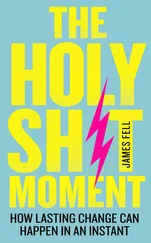This evolution of communication is the biggest difference between my kids and my own development as a teenager. For me, football provided a way to enter the adult world. During my teenage years my dad ran Sunday league teams. We would travel together as a squad, play the game, go to the pub afterwards and be home for the Sunday roast my mum had prepared. During those years I learnt how to be amongst men. I also learnt that if you make a commitment, you stick to it. So even on wet Sunday mornings, when your bed was calling you, you got up and went to play on whatever pitch you were sent to that week.
Trying to recall my teenage years, I can remember football constantly being there. The academy system that most clubs run these days did not exist then, so it was possible to believe you might become a professional footballer even if you hadn’t been scouted by the time you were 20. There were always examples of top-flight footballers who, a few years earlier, had been playing Sunday league football. The consequence was that amateur football was very vibrant: people still had dreams, and those dreams had a chance of being realised. It wasn’t difficult to get kids together either, because everyone wanted to play. In a world without computer games or, for that matter, home computers, and where children’s TV was only on for a few hours after school, if you didn’t go out and do something your options were very limited.
Having run kids’ teams myself in recent years, I don’t recall levels of parental involvement or interference being as high back then, either. I don’t recollect my dad having to drop us off and pick us up in the same way my wife and I have spent the last few years doing – to the point that if there is one luxury I have allowed myself, it is to set up a taxi account. My secret ambition is to one day own a car and sell it years later, without it ever having been used to ferry them anywhere. When my oldest son recently passed his driving test, my wife and I sat back and planned what we would do with all the spare time we would now gain from not driving him around. She is considering a second degree and I am planning to learn Chinese.
The truth was that we expected less then. Youth teams barely had full kits, let alone matching hoodies and personalised bags. The parents who did come generally did so to support the lads; there was no need for rope around the pitch to prevent irate parents coming onto the field to either support or bollock their little Johnny. The level of organisation in youth football now is impressive. Team coaches have to pass an approved FA coaching course, people involved are CRB checked, and my son’s under-15 team has to line up to have their photo ID-checked by the opposition manager before every game.
I think some of this can be overkill, like being CRB-checked to take your own son and his friends to a game, even though they all stayed at your house the night before. (This was actually suggested to me a few years ago – you can imagine my response.) It’s great to be organised, but you don’t want to take the simple pleasure out of the game. Although I do think the ID cards are a good idea, as it prevents teams playing ‘ringers’: I recall playing a game against one team when I was 15, which we lost. At the end of the game their bearded centre-half drove himself and his watching wife and kids home.
As a teenager the team I played for was Halton Sports. It was run by my dad’s friend, Joe Langton, whose son, Peter, also played. Joe was a barrel-chested man with a bald head, the crown of which was framed by short, blond hair. He always sported a neat moustache. A strong man whose day job was laying flag stones, Joe was almost square in shape. The joke amongst the lads was that he had once been six-foot-seven and a house had fallen on him to make him the square five-foot-six he actually was. Joe took it so seriously that he would often turn up in a three-piece suit, ready for an interview with Match of the Day should they turn up.
The team was good. The better players from our school team played, boys like Mark Donovan, Sean Johnson and Curtis Warren – not the infamous Liverpool gangster, but a fast, ginger-haired lad who scored a lot of goals. We were joined by good lads from the schools’ representative team, like John Hickey and Peter Golburn. I only list the names because none of us became professional footballers – which was an obvious ambition for us all – and every single one of those listed would have been good enough.
I would possibly suggest that playing in Joe’s team was the highest sporting success most of us enjoyed, as we spent one season completely unbeaten and won most things in the years that we played. My dad kept all the newspaper clippings of my resulting football career, and I always look at the coverage of that period with affection.
• • •
Apart from playing football, there was not a lot to do on the estate. When I was a bit older I volunteered at a cancer hospice, but in my early teens I never went to a youth club or anything of that nature, and generally just hung around on my bike doing all the things teenage boys do. I never really got into too much trouble. Scrapping had been replaced by an interest in girls, and the knowledge that as you all grew bigger it hurt more when you got hit. I never did the drinking-cider-on-a-wall-and-smoking thing that many started to do in their mid-teens because I had promised my dad I would never smoke, a promise he made all four of us make to him from a very early age, and which none of us has broken – apart from allowing myself the odd cigar. (That habit began one night in a posh hotel in Valletta, Malta. I found myself alone with an 80-year-old barman called Sonny, drinking a glass of whisky and listening to Frank Sinatra. Having a cigar seemed the most appropriate thing in the world.)
When I was 13 and feeling the need to be more independent and spread my wings outside the estate, football things were replaced by a bicycle. It was a silver ‘racer’, which basically meant it weighed a ton but had curved handlebars. Due to a cock-up by the catalogue company, I didn’t actually get the bike till Easter, so on Christmas Day my present was a box containing Cluedo. A great game, but not a great way to get around the estate. I hope I hid my disappointment well enough on the day when asking through gritted teeth – when my mates were all out on their new bikes – ‘Was it Professor Green with the lead piping?’
With the ability to stagger repayments, the catalogue was the avenue through which many people on the estate purchased things that were out of their reach financially. Every time a White Arrow van arrived on the estate, you knew someone was getting something from the catalogue. The bike was my final present as a child. Every year previously for Christmas I received something football-related. After the bike, all my Christmas presents were things to make me look good or allow me to go out; in other words, money or clothes. Unless it was a book voucher, which no kid wants as a Christmas present – you may as well give them an abacus and say, ‘Go and try to be a bit cleverer next year.’
The progression of a boy’s life can be mapped out by the Christmas presents he receives: a kit; a ball; one year I got a Subbuteo set with two teams, England and Uruguay. Nobody knew where Uruguay was, but they played in a blue kit and all the players were painted brown, so when I played Subbuteo, it was always England v the Black Everton.
As I got older, other things became more important to me, such as trying to be fashionable. I particularly remember receiving my first Fred Perry T-shirt, a yellow one with brown trim, which I don’t think I took off until it was physically too small to get on and had begun to look like a bra. But the only way of providing you with something that allowed you to make up your own mind was with money. Cash became king in my teenage years when it came to presents. I could buy records, although I never went too crazy on this: I rationalised that there is always new music, so why spend your money on something you like now when something better may be out next week? These are the decisions you had to make when it came to records, as they were things of permanence, not like a download. Even if you weren’t playing it, you had to put it somewhere, and I couldn’t always be bothered with that level of responsibility. Besides, being the youngest allowed me to listen to the music the others brought into the house, on either vinyl or cassette. I realise for readers of a certain age these things may as well be tablets of stone, and for others they provided hours of musical joy, but to me they were just more things I had to put away.
Читать дальше
